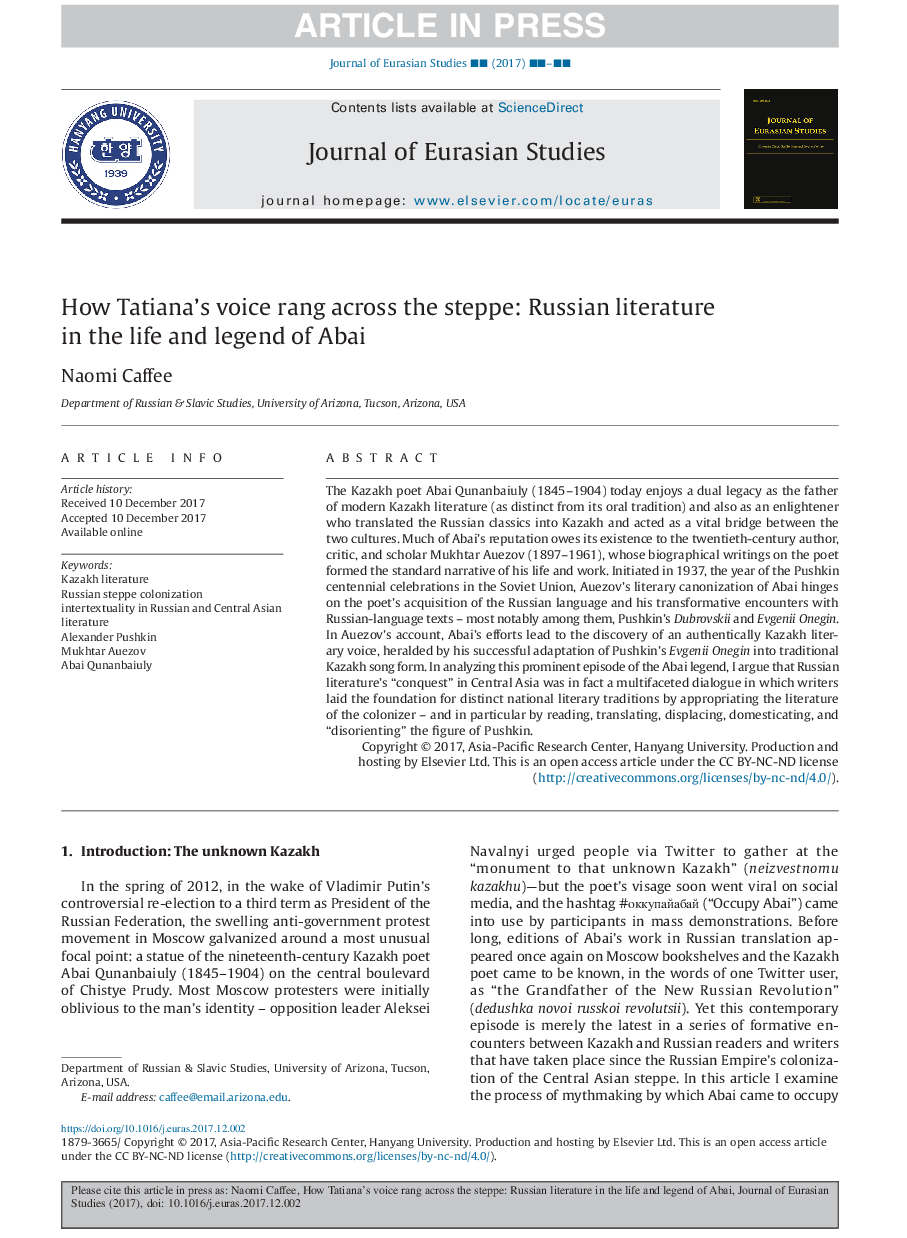| کد مقاله | کد نشریه | سال انتشار | مقاله انگلیسی | نسخه تمام متن |
|---|---|---|---|---|
| 7537616 | 1488700 | 2018 | 8 صفحه PDF | دانلود رایگان |
عنوان انگلیسی مقاله ISI
How Tatiana's voice rang across the steppe: Russian literature in the life and legend of Abai
ترجمه فارسی عنوان
صدای تاتیانا در سراسر استپ صدا کرد: ادبیات روسی در زندگی و افسانه ای ابایی
دانلود مقاله + سفارش ترجمه
دانلود مقاله ISI انگلیسی
رایگان برای ایرانیان
موضوعات مرتبط
علوم انسانی و اجتماعی
علوم انسانی و هنر
هنر و علوم انسانی (عمومی)
چکیده انگلیسی
The Kazakh poet Abai Qunanbaiuly (1845-1904) today enjoys a dual legacy as the father of modern Kazakh literature (as distinct from its oral tradition) and also as an enlightener who translated the Russian classics into Kazakh and acted as a vital bridge between the two cultures. Much of Abai's reputation owes its existence to the twentieth-century author, critic, and scholar Mukhtar Auezov (1897-1961), whose biographical writings on the poet formed the standard narrative of his life and work. Initiated in 1937, the year of the Pushkin centennial celebrations in the Soviet Union, Auezov's literary canonization of Abai hinges on the poet's acquisition of the Russian language and his transformative encounters with Russian-language texts - most notably among them, Pushkin's Dubrovskii and Evgenii Onegin. In Auezov's account, Abai's efforts lead to the discovery of an authentically Kazakh literary voice, heralded by his successful adaptation of Pushkin's Evgenii Onegin into traditional Kazakh song form. In analyzing this prominent episode of the Abai legend, I argue that Russian literature's “conquest” in Central Asia was in fact a multifaceted dialogue in which writers laid the foundation for distinct national literary traditions by appropriating the literature of the colonizer - and in particular by reading, translating, displacing, domesticating, and “disorienting” the figure of Pushkin.
ناشر
Database: Elsevier - ScienceDirect (ساینس دایرکت)
Journal: Journal of Eurasian Studies - Volume 9, Issue 1, January 2018, Pages 12-19
Journal: Journal of Eurasian Studies - Volume 9, Issue 1, January 2018, Pages 12-19
نویسندگان
Naomi Caffee,
